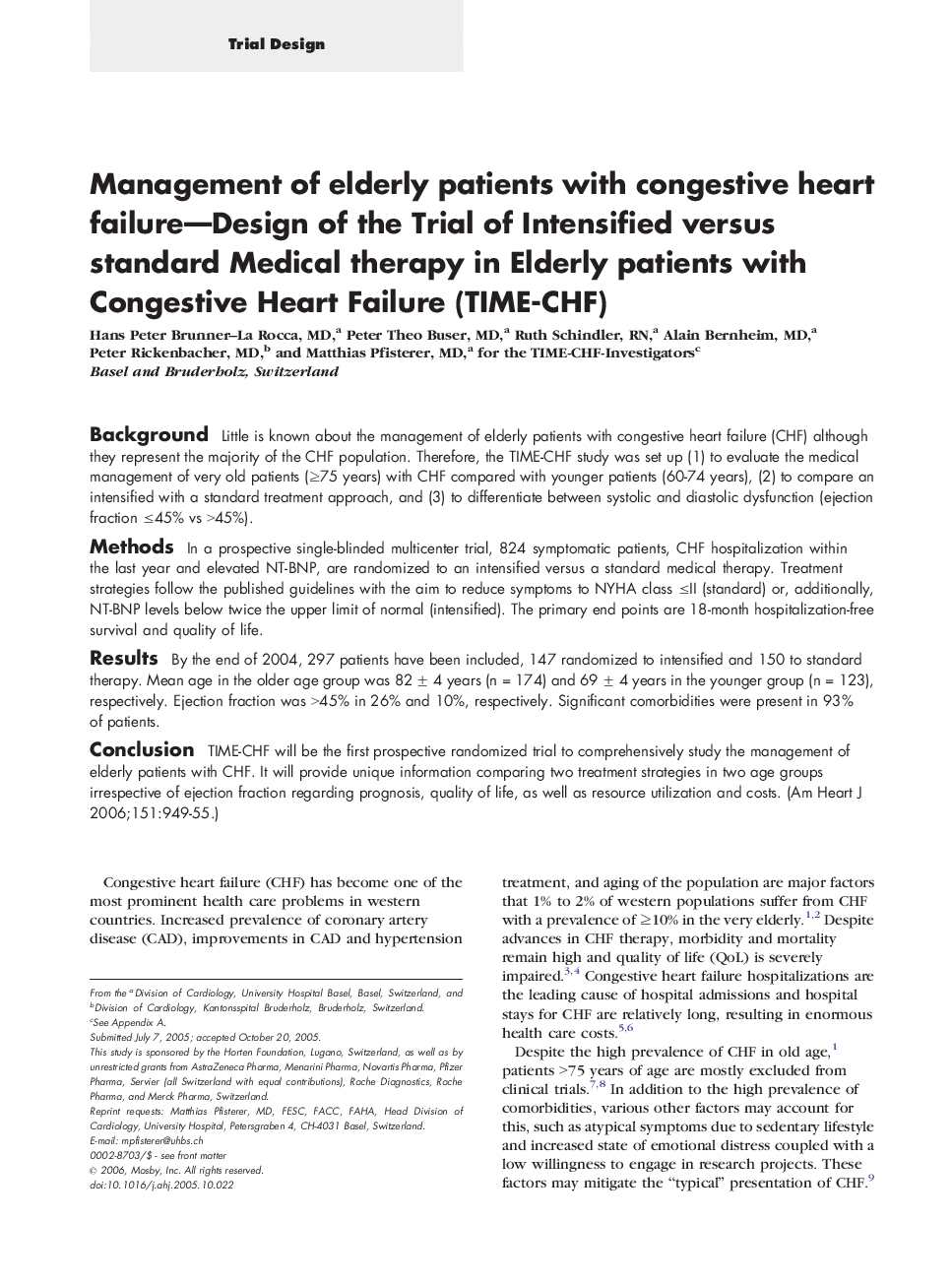| Article ID | Journal | Published Year | Pages | File Type |
|---|---|---|---|---|
| 2851165 | American Heart Journal | 2006 | 7 Pages |
BackgroundLittle is known about the management of elderly patients with congestive heart failure (CHF) although they represent the majority of the CHF population. Therefore, the TIME-CHF study was set up (1) to evaluate the medical management of very old patients (≥75 years) with CHF compared with younger patients (60-74 years), (2) to compare an intensified with a standard treatment approach, and (3) to differentiate between systolic and diastolic dysfunction (ejection fraction ≤45% vs >45%).MethodsIn a prospective single-blinded multicenter trial, 824 symptomatic patients, CHF hospitalization within the last year and elevated NT-BNP, are randomized to an intensified versus a standard medical therapy. Treatment strategies follow the published guidelines with the aim to reduce symptoms to NYHA class ≤II (standard) or, additionally, NT-BNP levels below twice the upper limit of normal (intensified). The primary end points are 18-month hospitalization-free survival and quality of life.ResultsBy the end of 2004, 297 patients have been included, 147 randomized to intensified and 150 to standard therapy. Mean age in the older age group was 82 ± 4 years (n = 174) and 69 ± 4 years in the younger group (n = 123), respectively. Ejection fraction was >45% in 26% and 10%, respectively. Significant comorbidities were present in 93% of patients.ConclusionTIME-CHF will be the first prospective randomized trial to comprehensively study the management of elderly patients with CHF. It will provide unique information comparing two treatment strategies in two age groups irrespective of ejection fraction regarding prognosis, quality of life, as well as resource utilization and costs.
